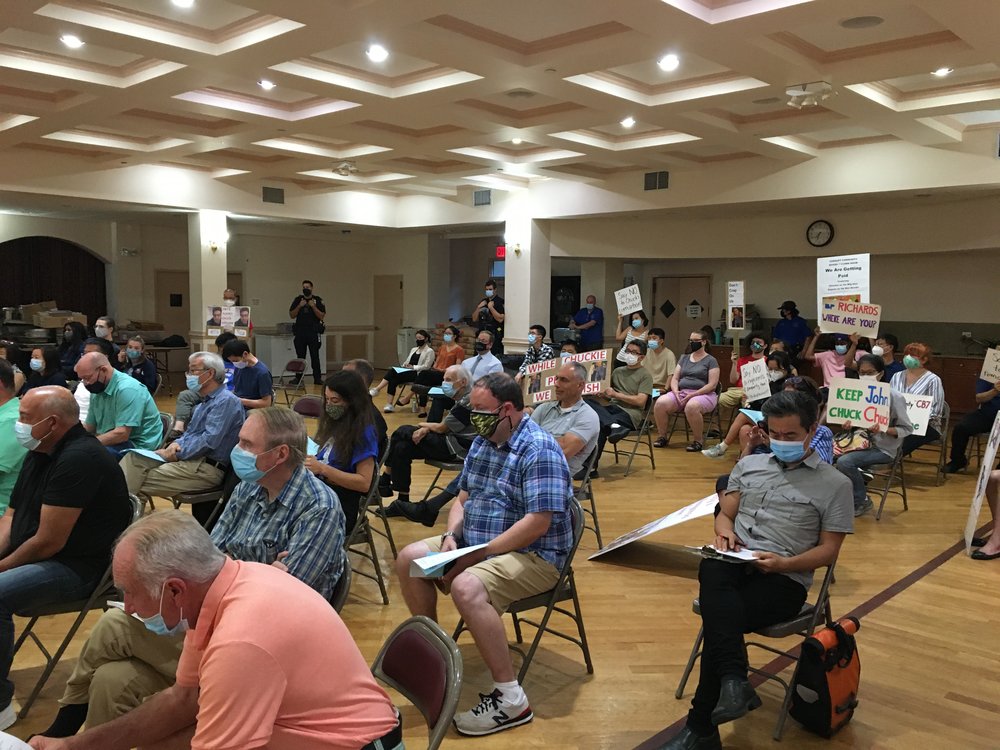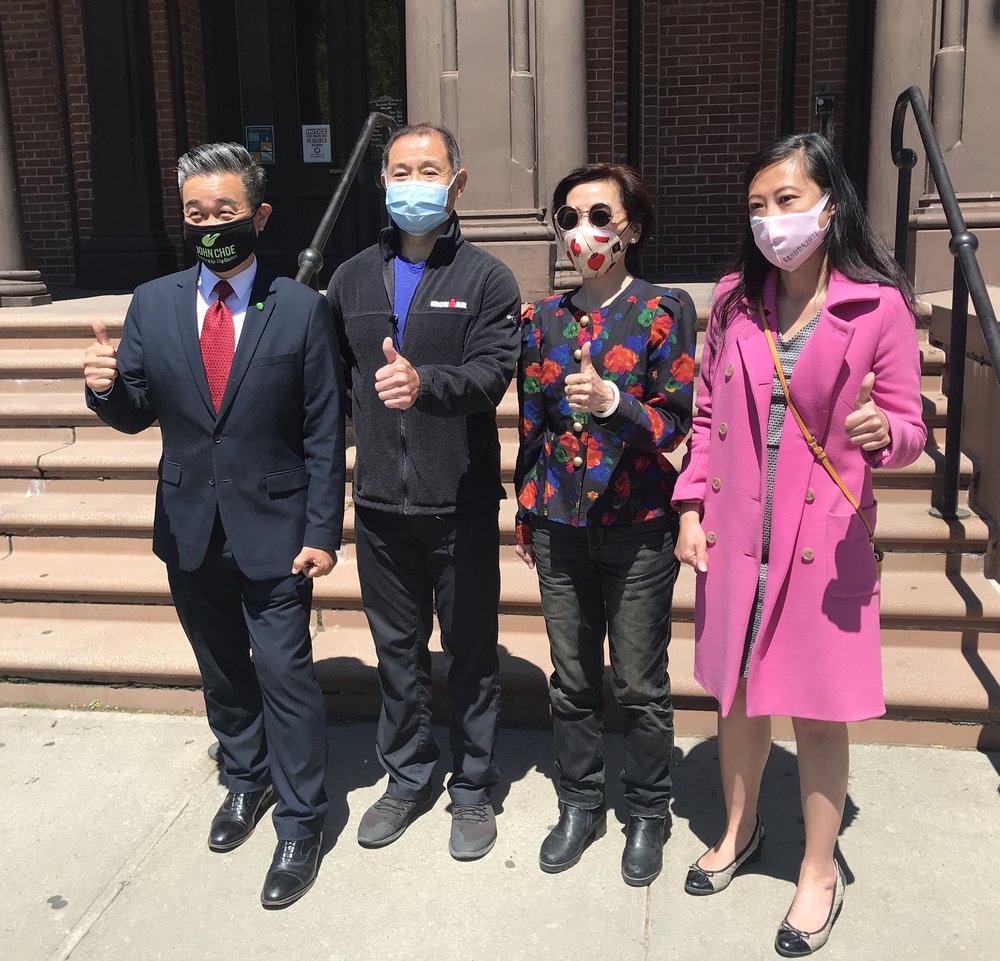CB7 votes overwhelmingly to remove Choe
John Choe is no longer a member of Community Board 7.
Board members voted 39-3 with one abstention on Monday night in favor of removing him from the board over five separate allegations that board leadership said were unethical and, in some cases, violated the City Charter.
“What’s typical and what we are finding here is a defiance, an arrogance,” said board vice chair Chuck Apelian. “Someone who doesn’t want to go with the rules just for the sake of having it his way.”
Choe has been critical of board leadership in the past, especially Apelian, who also chairs the Land Use Committee, for hiring himself out as a consultant to developers with business before the board. Most recently, Apelian recused himself from the full board vote on the Special Flushing Waterfront District because he had worked for the developers behind the project.
Board chair Gene Kelty appointed member Frank Macchio to head a special committee to look into the allegations against Choe and make a recommendation to the board, but at Monday night’s hearing in the basement of Holy Cross Greek Orthodox Church in Whitestone, Apelian did most of the talking, outlining for board members why Choe should be removed.
Choe was appointed to a new two-year term by Borough President Donovan Richards earlier this year. Following his appointment, board leadership started the proceedings to have him removed, a highly unusual move for a community board.
The most serious charge against Choe was that he solicited campaign contributions from board members for his City Council run earlier this year. Twenty-three of the 50 board members received the email.
Choe contends that those email addresses were in his 4,000-person contact list because he dealt with them outside of official board business. Indeed, one board member who received the email is Choe’s pastor, another said they had an exchange with him about bike lanes, and another served in a civic association with Choe.
Board leadership filed a complaint with the Conflict of Interests Board (COIB). That letter was rpvided to board members during Monday night’s meeting, but when pressed about a response from COIB, Kelty replied that the board never heard back.
For his part, Choe said that he also reached out to the COIB and did receive a response. He was told the charter provision about soliciting public servants for campaign contributions only applies to people with influence over policy.
“I have not had substantive policy-making decisions on this board,” Choe told board members. “Trust me, I would love to have policy discretion on this board.”
But Apelian noted that community board recommendations to the borough president are made by the local City Council member.
“Ask yourself, ‘gee, what if he won, would he kick me off the board?” he said. “Maybe I should contribute to him.”
Choe, it should be noted, was reappointed to Community Board 7 despite Councilman Peter Koo refusing to give him a recommendation.
Other allegations against Choe are that he had a poor attendance record, that he made a joke about taking a bribe during a hearing, and his criticisms of Apelian amounted to defamation.
But perhaps the charge that resonated most with the board is that Choe created a Community Board 7 Facebook page without the approval of board leadership.
When asked by Kelty if he created the page, Choe initially denied it, but later admitted that he was the administrator. Kelty said they referred the matter to the Department of Investigations (DOI), and when pressed by the board to provide DOI’s response, Kelty said the department told him over the phone that it was illegal for Choe to use the CB7 logo and misrepresent the board.
Kelty and Apelian said Choe used the page to promote the Greater Flushing Chamber of Commerce, of which Choe is the executive director.
“You can not represent the board on behalf of your own opinion,” said Apelian. “If you don’t like what the chair says, you don’t just go ahead and do it anyway.”
Several Choe supporters attended the meeting, which was held far from the downtown Flushing location where the board usually meets and was not broadcast over the Internet, as has been done during the pandemic.
“COVID-isolated individuals” were instead asked to travel to Korean Community Services in Bayside.
Over 100 people signed a petition urging Richards to stop the proceeding and instead investigate Apelian.
Richards has made it a priority during his time in office to diversify the borough’s community boards to more adequately reflect the communities they represent. He said that is why he reappointed Choe to CB7, but acknowledged that the board has the authority to remove him.
“I reappointed John Choe to Community Board 7 because I truly believe our community boards should be diverse, both in identity and thought,” he said in a statement following the vote. “Under the City Charter, however, a community board has the ability to remove a member for cause with a majority vote, and Community Board 7 has decided to exercise this authority.”



